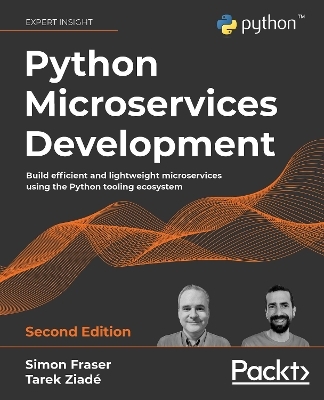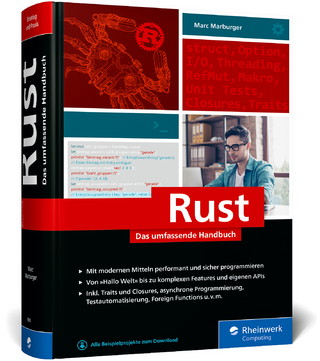
Python Microservices Development
Packt Publishing Limited (Verlag)
978-1-80107-630-2 (ISBN)
Use Python microservices to craft applications that are built as small standard units using proven best practices and avoiding common errors
Key Features
Become well versed with the fundamentals of building, designing, testing, and deploying Python microservices
Identify where a monolithic application can be split, how to secure it, and how to scale it once ready for deployment
Use the latest framework based on asynchronous programming to write effective microservices with Python
Book DescriptionThe small scope and self-contained nature of microservices make them faster, cleaner, and more scalable than code-heavy monolithic applications. However, building microservices architecture that is efficient as well as lightweight into your applications can be challenging due to the complexity of all the interacting pieces.
Python Microservices Development, Second Edition will teach you how to overcome these issues and craft applications that are built as small standard units using proven best practices and avoiding common pitfalls. Through hands-on examples, this book will help you to build efficient microservices using Quart, SQLAlchemy, and other modern Python tools
In this updated edition, you will learn how to secure connections between services and how to script Nginx using Lua to build web application firewall features such as rate limiting. Python Microservices Development, Second Edition describes how to use containers and AWS to deploy your services. By the end of the book, you’ll have created a complete Python application based on microservices.
What you will learn
Explore what microservices are and how to design them
Configure and package your code according to modern best practices
Identify a component of a larger service that can be turned into a microservice
Handle more incoming requests, more effectively
Protect your application with a proxy or firewall
Use Kubernetes and containers to deploy a microservice
Make changes to an API provided by a microservice safely and keep things working
Identify the factors to look for to get started with an unfamiliar cloud provider
Who this book is forThis book is for developers who want to learn how to build, test, scale, and manage Python microservices. Readers will require basic knowledge of the Python programming language, the command line, and HTTP-based application principles. No prior experience of writing microservices in Python is assumed.
Simon Fraser works as a Lead Site Reliability Engineer at Cisco Meraki. Previously, he worked at Mozilla as a Senior Release Engineer and Systems Administrator in a high-performance computing environment, which is where he started using Python to automate systems administration tasks. He has more than 20 years of experience in writing software tools, automating and deploying large-scale systems, and using data to drive the flow of work. Tarek Ziadé is a Software Engineer, located in Burgundy, France. He works at Elastic, building tools for developers. Before Elastic, he worked at Mozilla for 10 years. Tarek founded a French Python User group called Afpy. He has written several articles on the Python programming language for various magazines and also a few books in French and English.
Table of Contents
Understanding Microservices
Discovering Quart
Coding, Testing, and Documenting: the Virtuous Cycle
Designing Jeeves
Splitting the Monolith
Interacting with Other Services
Securing Your Services
Making a Dashboard
Packaging and Running Python
Deploying on AWS
What's Next?
| Erscheinungsdatum | 04.10.2021 |
|---|---|
| Verlagsort | Birmingham |
| Sprache | englisch |
| Maße | 75 x 93 mm |
| Themenwelt | Mathematik / Informatik ► Informatik ► Programmiersprachen / -werkzeuge |
| Mathematik / Informatik ► Informatik ► Web / Internet | |
| ISBN-10 | 1-80107-630-8 / 1801076308 |
| ISBN-13 | 978-1-80107-630-2 / 9781801076302 |
| Zustand | Neuware |
| Haben Sie eine Frage zum Produkt? |
aus dem Bereich


